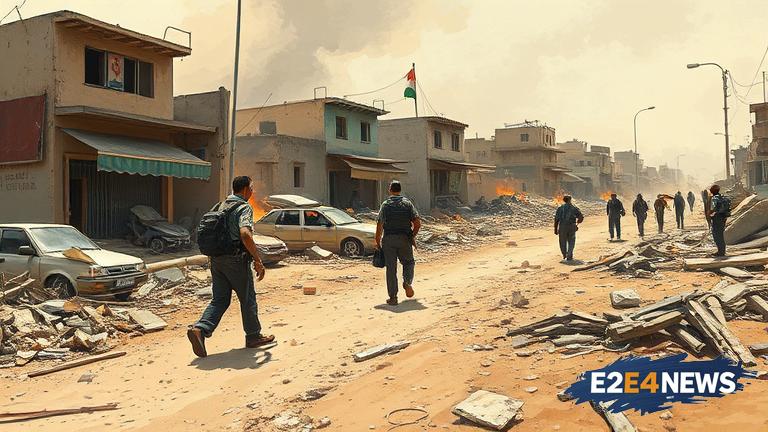The Gaza Strip, a coastal region in the Middle East, has emerged as the deadliest place in the world for journalists to operate. The ongoing conflict between Israel and Palestinian militants has created a hazardous environment for media personnel, with many facing threats, arrests, and even death. In recent years, the situation has deteriorated significantly, with Israel’s military actions causing widespread destruction and civilian casualties. Journalists attempting to document the devastation have been deliberately targeted, with some being killed or injured in the line of duty. The Israeli military has been accused of using excessive force against journalists, including those clearly identified as media personnel. The international community has condemned these actions, emphasizing the importance of protecting journalists and upholding freedom of the press. Despite these warnings, the Israeli government continues to restrict media access to the Gaza Strip, making it challenging for journalists to report on the conflict. The consequences of this repression are far-reaching, with the world being denied a truthful account of the situation on the ground. As the conflict escalates, the risks faced by journalists in Gaza are increasing, with many being forced to work in secret or under pseudonyms to avoid detection. The psychological toll of working in such a high-stress environment should not be underestimated, with many journalists experiencing trauma and anxiety. Furthermore, the targeting of journalists has a chilling effect on the media as a whole, discouraging others from reporting on the conflict. The situation in Gaza is a stark reminder of the dangers faced by journalists worldwide, particularly in conflict zones. It is essential that governments and international organizations take concrete steps to protect journalists and ensure their safety. This includes providing training and equipment to help journalists operate safely, as well as holding those responsible for attacks on journalists accountable. The role of social media in amplifying the voices of journalists and activists in Gaza should not be overlooked, with many using these platforms to share their experiences and raise awareness about the conflict. However, even social media is not without risks, with many journalists facing online harassment and intimidation. In conclusion, the Gaza Strip has become a deadly frontline for journalists, with the Israeli-Palestinian conflict creating an environment of fear and repression. It is crucial that the international community takes action to protect journalists and promote freedom of the press, ensuring that the world is informed about the situation in Gaza and other conflict zones. The consequences of inaction would be devastating, with the truth being silenced and the voices of those affected by the conflict being ignored. As the situation in Gaza continues to deteriorate, it is essential that journalists and media organizations remain committed to reporting on the conflict, despite the risks. By doing so, they can help to bring attention to the plight of those affected and push for a resolution to the conflict. Ultimately, the protection of journalists and the promotion of freedom of the press are essential for a functioning democracy and a well-informed public. The world must come together to condemn the targeting of journalists in Gaza and to support those brave enough to report on the conflict. Only through collective action can we ensure that the truth is told and that those responsible for attacks on journalists are held accountable. The fate of journalism in Gaza hangs in the balance, and it is up to us to act. The time for action is now, and the world must respond to the crisis faced by journalists in Gaza. We owe it to the journalists who have lost their lives, and to those who continue to report on the conflict despite the risks. The protection of journalists is a fundamental human right, and it is our responsibility to uphold it. By working together, we can create a safer environment for journalists in Gaza and ensure that the truth is told. The future of journalism in Gaza depends on it, and we must not fail.
